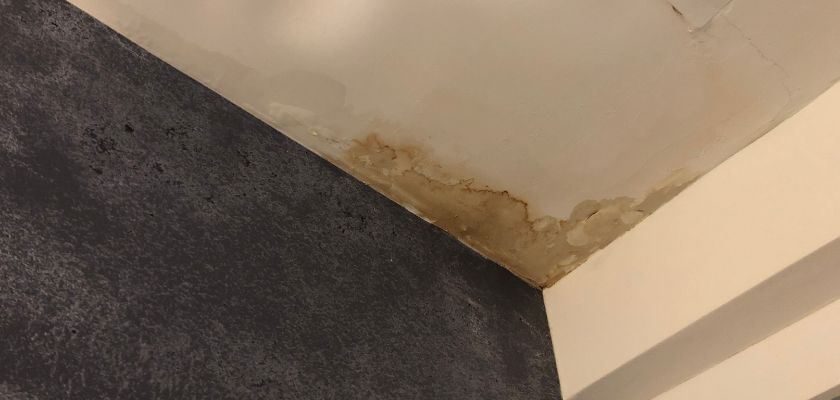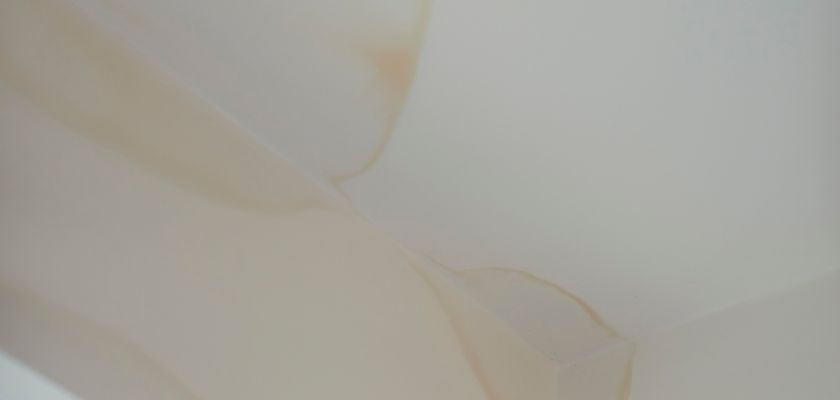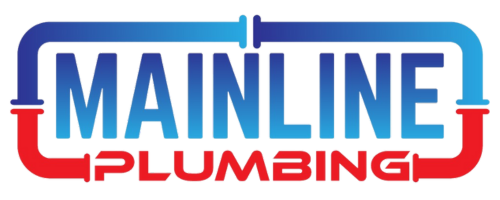Water leaks are more than just a minor inconvenience—they can lead to significant damage, costly repairs, and even health risks if left undetected. The insidious nature of water leaks means they can go unnoticed for weeks, months, or even years, slowly causing damage that may be expensive and difficult to repair. Recognizing early water leaks is crucial for homeowners who want to avoid the hidden costs associated with these sneaky problems. In this article, we’ll explore the consequences of undetected water leaks, how to spot them early, and why professional leak detection in North Richland Hills can save you money and protect your home.
Table Of Contents
The Costly Consequences of Undetected Water Leaks

Structural Damage to Your Home
One of the most severe outcomes of undetected water leaks is the structural damage they can cause to your home. Water has a way of seeping into every nook and cranny, weakening the very framework of your house.
Rotting Wood and Foundations
Over time, water leaks can cause wood to rot, compromising the integrity of beams, joists, and other structural components. This can lead to sagging floors, warped walls, and even a weakened foundation. Repairing structural damage can be extremely costly and may require extensive reconstruction work.
Mold and Mildew Growth
Another consequence of prolonged water exposure is mold and mildew growth. These fungi thrive in damp environments, and once they take hold, they can spread quickly. Not only does mold damage your home’s materials, but it also poses significant health risks, especially for those with allergies or respiratory conditions.
Compromised Insulation
Water leaks can also saturate and ruin your home’s insulation. Wet insulation loses its effectiveness, leading to higher energy bills as your heating and cooling systems work harder to maintain a comfortable temperature. Replacing insulation can be expensive and disruptive.
Health Risks Associated with Water Leaks
Beyond the physical damage to your home, undetected water leaks can create an unhealthy living environment. Mold, in particular, can have serious implications for your health.
Respiratory Issues
Mold spores released into the air can cause a range of respiratory problems, from mild irritation to severe allergic reactions and asthma attacks. In homes with significant mold growth, occupants may experience chronic coughing, sneezing, and even difficulty breathing.
Allergic Reactions
For those with mold allergies, exposure to even a small amount can trigger symptoms such as itchy eyes, runny nose, and skin rashes. Prolonged exposure can exacerbate these symptoms, making living in the home uncomfortable and potentially dangerous.
Long-Term Health Effects
Long-term exposure to mold and mildew can have more serious health effects, including the development of chronic respiratory conditions, fatigue, and in extreme cases, toxic mold syndrome. This condition can cause memory loss, cognitive difficulties, and other neurological issues.
Financial Impact of Water Leaks
The financial costs of undetected water leaks can be significant, encompassing everything from increased utility bills to expensive repairs and replacements.
Skyrocketing Water Bills
One of the first signs of a hidden water leak is an unexplained spike in your water bill. Even a small, continuous leak can waste thousands of gallons of water over time, leading to shockingly high utility bills. Early detection can help you avoid paying for water you’re not even using.
Expensive Repairs
Once a leak has caused significant damage, repairs can be costly. This may include replacing damaged drywall, flooring, and insulation, as well as addressing structural issues. In severe cases, you may even need to hire a contractor to rebuild parts of your home.
Decreased Property Value
If water damage is not addressed promptly, it can lead to a decrease in your home’s value. Potential buyers are likely to be put off by visible signs of water damage or the presence of mold, making it harder to sell your home or reducing the amount you can ask for it.
How to Spot Early Water Leaks

Common Signs of Water Leaks
Spotting early water leaks can save you from dealing with the costly consequences outlined above. Here are some common signs that there may be a leak in your home.
Unexplained Water Stains
Water stains on walls, ceilings, or floors are one of the most obvious signs of a leak. These stains are usually brownish or yellowish and may grow over time. If you notice any unusual discoloration, it’s important to investigate the source immediately.
Musty Odors
A musty odor in your home can indicate the presence of mold or mildew, which often accompanies a water leak. If you smell something musty but can’t find the source, it’s worth checking for hidden leaks behind walls, under floors, or in your basement.
Changes in Water Pressure
If you notice a sudden drop in water pressure when using your faucets or shower, it could be a sign of a leak somewhere in your plumbing system. While a slight decrease in pressure may not seem alarming, it can indicate a more serious problem that needs to be addressed.
Checking for Hidden Leaks
Not all water leaks are immediately visible. Some may be hidden behind walls or under floors, making them harder to detect. Here’s how to check for these hidden leaks.
Monitor Your Water Meter
One of the easiest ways to detect a hidden leak is by monitoring your water meter. Start by turning off all water sources in your home, including faucets, toilets, and appliances. Then, check the water meter to see if it’s still moving. If it is, you likely have a leak.
Inspect Your Plumbing
Regularly inspecting your plumbing for signs of wear and tear can help you catch leaks early. Look for corroded pipes, loose connections, and damp spots around your plumbing fixtures. If you notice anything unusual, it’s time to call in a professional for a more thorough inspection.
Use Moisture Sensors
Moisture sensors are a great tool for detecting hidden leaks. These devices can be placed in areas prone to leaks, such as under sinks, behind appliances, and in basements. If moisture is detected, the sensor will alert you, allowing you to take action before the leak causes significant damage.
When to Call a Professional
While some leaks are easy to spot and fix, others require the expertise of a professional. Here’s when you should consider calling in the experts for leak detection in North Richland Hills.
Persistent Leak Signs
If you’ve noticed signs of a leak but can’t locate the source, it’s time to call a professional. Persistent signs like water stains, musty odors, or increased water bills should not be ignored.
Suspected Hidden Leaks
Hidden leaks can cause extensive damage before they’re detected. If you suspect a hidden leak, especially after performing your own checks, it’s best to get a professional involved. They have the tools and experience to locate leaks that are out of sight.
After a Major Weather Event
Severe weather, such as heavy rain or freezing temperatures, can put a strain on your plumbing system. After a major weather event, it’s a good idea to have your home inspected for any signs of leaks or damage.
The Importance of Professional Leak Detection
Advanced Detection Methods
Professional leak detection services use advanced techniques and equipment to locate leaks that may not be visible to the naked eye. This includes thermal imaging, acoustic sensors, and video inspection tools.
Thermal Imaging
Thermal imaging cameras can detect temperature differences behind walls and under floors, helping to identify areas where water may be leaking. This method is non-invasive and allows professionals to pinpoint leaks without causing damage to your home.
Acoustic Sensors
Acoustic sensors can detect the sound of water escaping from pipes, even when the leak is hidden behind walls or under floors. These sensors are highly sensitive and can pick up on even the smallest leaks.
Video Inspection
Video inspection involves using a small camera attached to a flexible cable, which is inserted into your plumbing system. This allows professionals to visually inspect your pipes for signs of leaks, corrosion, or blockages.
Benefits of Hiring a Professional
Hiring a professional for leak detection in North Richland Hills offers several benefits, including accurate diagnosis, timely repairs, and peace of mind.
Accurate Diagnosis
A professional plumber can accurately diagnose the cause of a leak and recommend the most effective repair solution. This ensures that the problem is resolved correctly the first time, reducing the risk of further damage.
Timely Repairs
Early detection and timely repairs can save you from dealing with costly damage. By addressing the issue quickly, you can prevent the leak from spreading and causing more extensive problems.
Peace of Mind
Knowing that your home is leak-free gives you peace of mind. Regular inspections and professional leak detection can help you avoid unexpected surprises and keep your home in good condition.
Final Wording
The hidden costs of undetected water leaks can be devastating, leading to structural damage, health risks, and significant financial strain. By being vigilant and learning to spot early water leaks, you can protect your home and avoid these costly consequences. Professional leak detection in North Richland Hills is an invaluable service that can help you identify and address leaks before they cause major damage. Regular maintenance, prompt repairs, and proactive leak detection are key to preserving the integrity of your home and ensuring a safe, healthy living environment.
FAQ’s
1. How can I tell if my home has a hidden water leak?
Common signs of a hidden water leak include unexplained water stains, musty odors, changes in water pressure, and a sudden increase in your water bill. Monitoring your water meter and inspecting plumbing fixtures can also help detect hidden leaks.
2. What should I do if I suspect a water leak but can’t find the source?
If you suspect a water leak but can’t locate it, it’s important to call a professional for leak detection in North Richland Hills. Professionals use advanced tools like thermal imaging and acoustic sensors to pinpoint hidden leaks without causing damage to your home.
3. How do water leaks lead to structural damage in a home?
Water leaks can weaken the structural integrity of your home by causing wood to rot, compromising insulation, and leading to mold growth. Over time, this can result in sagging floors, warped walls, and even a weakened foundation, all of which can be costly to repair.
4. Can a small, undetected leak really cause health problems?
Yes, even a small leak can create the perfect environment for mold and mildew to thrive. Mold spores can lead to respiratory issues, allergic reactions, and other long-term health effects, especially in individuals with pre-existing conditions.
5. How often should I have my home inspected for potential water leaks?
It’s a good idea to have your home inspected for water leaks at least once a year, especially in areas prone to leaks like basements, bathrooms, and kitchens. Regular inspections can help catch leaks early before they cause major damage.







